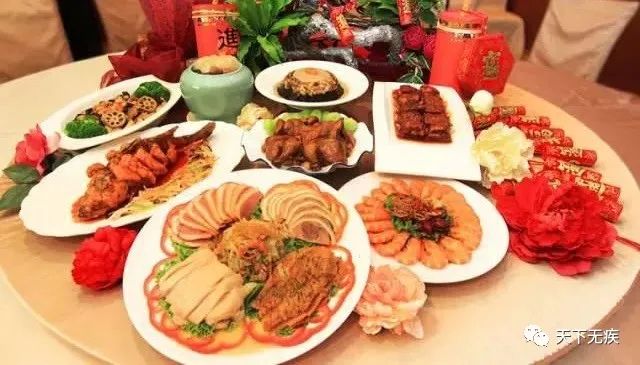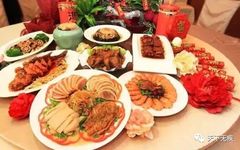
Under the guidance of Western medicine and nutritional theories, the mainstream view holds that after recovering from an illness, it is necessary to promptly replenish nutrition. This so-called nutrition mainly refers to protein; that is, delicious foods such as meat, eggs, and dairy. Among patients who have recovered from fever, some immediately start cooking a large pot of pork ribs or a big plate of lamb to “replenish nutrition.” As a result, they experience a recurrence of fever along with a severe nosebleed and a sore throat.
This phenomenon was already noted by ancient scholars in the Huangdi Neijing (Inner Canon of Huangdi) two thousand years ago, stating, “When the disease heat is not fully resolved, consuming meat will lead to a relapse.” Not only can the condition recur, but excessive consumption can also worsen the problem, leading to what is termed shi fu (食复, food relapse), which may result in some irreversible damage.
The occurrence of food relapse is primarily due to the previously mentioned weakness of the righteous qi (正气, zheng qi). Regardless, in cases of exogenous febrile diseases, the large-scale battle between the righteous and evil qi inevitably depletes the body’s righteous qi, which includes the qi of the spleen and stomach. After all, during wartime, agriculture is not the nation’s primary task; the main priority is to win the war. Thus, after a period of neglect or even destruction, the agricultural foundation deteriorates, which is not hard to imagine. The spleen and stomach, as the main organs responsible for the transformation and transportation of food and the generation of qi and blood, play a role similar to agriculture.
However, once the war is over and the enemy has been driven away, the next national mission will shift to ensuring survival and promoting development. Restoring agricultural and industrial production, boosting the economy, and returning life to normal become urgent tasks. All of this is closely related to the spleen and stomach. Only by helping the spleen and stomach recover quickly from a state of fatigue and weakness, allowing for a more abundant generation of qi and blood, can everything else have a foundation. The question is, how can we assist the spleen and stomach?
It is essential to reduce the burden on the spleen and stomach rather than increase it. If a person is already exhausted and panting, helping them means giving them a chance to lie down and rest, not forcing them to continue carrying heavy loads. For the spleen and stomach, consuming a relatively light diet is a way to reduce the burden; greasy and overly sweet foods increase the burden. Generally speaking, grains like rice, millet, and wheat are lighter than delicious foods like meat, eggs, and dairy. For instance, meat slices in stir-fried dishes are lighter than large chunks of meat or ribs cooked in a pot; steamed egg custard is lighter on the spleen and stomach than fried eggs. In short, one should avoid overly greasy foods.
If, conversely, after recovering from an exogenous disease, one begins to consume a large amount of greasy and sweet foods, it will not only increase the burden on the spleen and stomach, exacerbating the depletion of spleen and stomach qi, but it can also easily lead to food accumulation. When excessive food exceeds the digestive capacity of the spleen and stomach and accumulates in the gastrointestinal tract, it becomes food accumulation. This food accumulation can become a stumbling block to the body’s recovery.
It is important to understand that after a large-scale war, everything needs to be rebuilt, and resources are required everywhere. The nature of food accumulation is akin to a pile of valuable resources that, due to insufficient transport capacity, are left stranded on the road, unable to move and blocking the way for others. Food accumulation in the spleen and stomach, which is centrally located in the body, is the hub for the upward and downward movement of qi. If this area is blocked, the qi above cannot descend, and the qi below cannot ascend, making recovery impossible. Whenever natural disasters such as earthquakes or floods occur, the distribution and transportation of relief supplies are critical, and the principle is the same.
Moreover, the timeliness of these resources is crucial; if not transported within a day, they will emit a sour and rotten smell; if not moved within three days, they will spoil, leaking foul liquids and emitting unpleasant odors. If you don’t believe it, leave an open egg in a bowl during summer and see if you still have the desire to eat it after three days. In other words, once food accumulation forms, the originally valuable food can turn into pathogenic qi that harms the body; it needs to be eliminated as soon as possible. So, how should one arrange their diet after recovering from an exogenous disease to facilitate better recovery?
Generally speaking, after the heat subsides, one can drink rice porridge (in summer, it can even be mung bean porridge), which nourishes the qi and fluids of the spleen and stomach while also clearing residual heat pathogens.
For those with weak spleen and stomach, especially those with a tendency towards coldness, it is more suitable to drink millet porridge, which can be enhanced with ginger and jujube.
Eggs can be consumed, and steamed egg custard is recommended, while fried eggs are not recommended; one egg per adult per day is sufficient. Other options like quail eggs and pigeon eggs are also acceptable; generally, no more than three per day is advisable.
In terms of meat, it is acceptable to eat small amounts of well-cooked meat. Given the nature of the febrile disease, it is best to avoid lamb (except for typical cold-deficient individuals). In terms of cooking methods, grilling and frying are prohibited; it is advisable to stew the meat until tender and eat it in thin slices.
Unless necessary, it is not recommended to consume various dairy products after recovering from a febrile disease, especially for those with weak and cold spleen and stomach.
Finally, protein powder is a highly regarded nutritional supplement. Clinical observations have shown that the nature of protein powder is generally warming and dry, somewhat similar to lamb. Overall, it is not advisable to take it after a febrile disease.
This article is selected from the “Growth Community for TCM Enthusiasts” organized by Wujizhe. Long press to identify the QR code below for more details. Wujizhe, 2023-2024 Learning Theme: Advanced Acupuncture.Selected Content from the Community1. Acupuncture, carving beauty through time 2. TCM teaches you how to rest efficiently 3. Daily maintenance of the spleen and stomach 4. Does room temperature water count as cold? 5. Allergies, how does TCM view them? 6. When hormones become medicine 7. From qi and blood to kidney essence 8. What happens when the stomach is strong but the spleen is weak? 9. Cherish kidney essence, do these three things.Long press to identify the QR code belowJoin the Growth Community for TCM Enthusiasts

